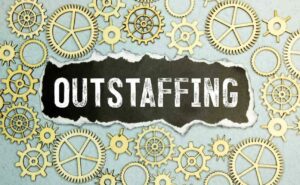Content
However, while critically important in DevOps, culture is an outcome, not an input; and such attributes are mostly either innate or acquired slowly. Gain global recognition, increase dialogue within the industry, build awareness, and demonstrate how the DevOps principles effects of remote work on devops can create help create culture changes and tangible outcomes. Offers you knowledge, guidance, and involvement in a network to help you successfully adopt DevOps and enable you to overcome the challenges you may face in your DevOps transformation journey.
- Although business leaders acknowledge that DevOps upskilling is necessary, there has not been an increase in the development of DevOps upskilling programs in the last year.
- While “T” represents an individual’s core competency, and the top of the T represents a broad range of related knowledge, there has been little clarity on which skills are the most important across a wide spectrum of possibilities—until now.
- Offer your teams access to short learning interventions, role-based pathways, and certification programs, all tailored to your needs.
- Sixty percent of organizations are recruiting now or in the future.
- DevOps Institute is dedicated to advancing the human elements of DevOps success.
- Sixty-six percent of survey respondents said that certifications are extremely valuable.
The DevOps Institute suggests that organizations use certifications around key technologies to upskill their employees. The majority of survey respondents agreed that certifications are invaluable. Quali announced its membership in the Cloud Native Computing Foundation and Linux Foundation to support the mission to drive adoption of cloud native technologies.
Enterprise DevOps 2020 Skills Report
According to the DevOps Institute Upskilling 2021 report, it’s no longer a question of whether or not organizations need DevOps, but rather when they should implement it. As per the report, global enterprise adoption of DevOps at the project or multiple-project level is 20% and 36%, respectively, and the skills required for a successful DevOps journey include automation, technical, human, functional, and process knowledge. As the pressure to sell products and services through e-commerce sites, apps, or SaaS solutions increases, the lines between product and engineering teams will blur, giving rise to cross-functional, multidisciplinary teams that must learn and grow together. Fifty-six percent of survey respondents selected functional skills and knowledge as the fourth-highest must-have skill domain.

All of our work, including accreditations, research, events, and continuous learning programs – is focused on providing the “human know-how” to modernize IT and make DevOps succeed. Human skills like collaboration and creativity are just as vital for DevOps success as technical expertise. This DevOps Institute report explores current upskilling trends, best practices, and business impact as organizations around the world make upskilling a top priority.
General Business Overview
All functional areas must work to make the shift towards digital services work for the company. This means all functions must be involved in developing software for the enterprise and giving input on how software can help the company be more competitive and deliver good service to customers. The worldwide pandemic accelerated the speed of digital transformation and the rate at which digital services became available. According to a McKinsey study, companies moved 20 to 25 times faster than they thought possible before the pandemic.
Instead, it is about a culture of collaboration, using capabilities to deliver applications and services at high velocity. As a result, the skills required go beyond just technical capability to include people skills. This combination of skills, practices, and culture drives the philosophes needed to achieve business objectives at the speed and quality that customers expect. The value of DevOps has continued to increase as digital transformation and cloud adoption initiatives have become mainstream in almost all sectors of the economy. OpsRamp reports that nearly three-quarters of survey respondents expect to either accelerate or maintain digital transformation initiatives and projects. Embracing DevOps practices is the only way to accelerate these activities through a seamless management of development and operation of digital solutions.

For instance, DevOps engineers must continually strive to break down silos while also moving away from traditional development, deployment, and waterfall builds that inhibit the velocity of scalable, qualitative, and reliable software. Survey responders reacted as follows when asked how they would rate the importance of these skills categories for a DevOps member. Technical monitoring, performance management (e.g. load balancing etc.), capacity and availability management, reliability engineering, cloud, containerization. Automated testing, deployment and release management, configuration management, version control, cloud, containerization, feature-driven delivery. Understand other points of view, collaboration, mutual accountability, common purpose, ability to integrally support the service/product. Request a personalised call today to see how DASA membership can help you better adopt a DevOps way of operating.
Wib announced API PenTesting-as-a-Service designed to help organizations proactively cover the latest PCI-DSS 4.0 mandates for testing application security, APIs, and vulnerabilities in Business Logic. Agile, DevOps and ITIL are getting strong competition from Site Reliability Engineering . While Agile adoption (81%), DevOps adoption (75%) and ITIL adoption (25%) have grown since the 2019 benchmark report, SRE has risen from 10% adoption in 2019 to 15% in 2020. Additional philosophies such as Value Stream Management (19%) and Systems Thinking (13%) are also being leveraged. Many of these disciplines and/or frameworks co-exist within organizations.
DevOps Institute Releases First Ever ‘Global SRE Pulse 2022’…
For cutting-edge enterprises, the DevOps engineer is increasingly becoming an essential and versatile profession. While technical abilities are required, DevOps engineers must also be able to communicate, multitask, and always put the customer first. DevOps is becoming more popular among businesses as a means of delivering software and security updates more quickly, both internally and to customers. New models such as DataOps and ModelOps are showing up.DataOps was voted by 27 percent as a must-have skill domain in the automation tool skill domain, whereas ModelOps received 22 percent. These new models are shaping the ongoing iterations of DevOps operating models. Digital services must excel across all organizational functions in order to delight customers.
Meanwhile, organizations will continue to focus on how to increase revenue while reducing costs. Experience, processes, effectiveness, utilization, quality, and speed are the levers for improvement. The message from CIOs, CFOs, and their business partners revealed an enormous demand for digitization to improve the customer experience. Although business leaders acknowledge that DevOps upskilling is necessary, there has not been an increase in the development of DevOps upskilling programs in the last year. Another vertical skill category focuses on human skills such as collaboration and interpersonal skills.
Transformation Guidance
Forty-seven percent of survey respondents consider SRE, which allows IT operations teams to balance automation and troubleshooting to continuously improve across a wide area of topics, a must-have skill. Value stream management , which involves looking at an entire value stream to understand how to continually reduce https://globalcloudteam.com/ waste and increase flow, received 39 percent of votes; DataOps and ModelOps also earned strong votes as must-have skills. AI, big data, and analytical knowledge are also needed technical skills. DevOps practices are not just about automating deployments or having developers and systems admins sitting together.
Gain access to several specialised working groups; this is a unique way to learn. The Working Groups offer you the opportunity to be involved in new innovative ideas, experiments, initiatives, and learning. We create a safe and interactive ecosystem where members can network, gain knowledge, grow their careers, lead and initiate, and celebrate professional achievements. Yugabyte announced a wave of new product innovations with the availability of YugabyteDB 2.17 and major enhancements to YugabyteDB Managed. Copado launched the DevOps Exchange, a DevOps marketplace for enterprise SaaS solutions.

DASA is a community-driven organization open for participating members to help build and define role based competences. This article originally appeared on enterprisersproject.com, to read the full article, click here. While the future looks promising for DevOps experts, much will depend on how DevOps engineers are leveraged to transform how work gets done.
Combined with the current skills gap, 2020 will be a tough year for hiring managers and HR leaders. Finding and attracting skilled DevOps Humans continues to be a challenge in 2020 — 58% of respondents in the report said finding skilled DevOps individuals is a challenge, and 48% say it’s difficult to retain skilled DevOps professionals. BMC works with 86% of the Forbes Global 50 and customers and partners around the world to create their future. Just as digital transformation is a journey, a DevOps professional cannot acquire these skills from a single training exercise. The DevOps journey spans multiple domains over a long period of time through both individual and collaborative efforts.
View All General Business
Everything-as-code, hybrid cloud operating models, and automated workflows will be top priorities for every DevOps team. The Upskilling report shows that the adoption of DevOps has varied in the last three years, but on average, 56 percent of organizations are deploying DevOps at either the project or enterprise level. During the pandemic, 38 percent of enterprises kept their current DevOps organization unchanged, and 23 percent expanded one or more of their DevOps teams. IT recruiting is at an all-time high and organizations want T-shaped professionals with cross-functional skill sets to join their teams. While “T” represents an individual’s core competency, and the top of the T represents a broad range of related knowledge, there has been little clarity on which skills are the most important across a wide spectrum of possibilities—until now.
Top 3 DevOps Skills to Succeed in the Industry
“Human transformation is the single most critical success factor to enable DevOps practices and patterns for enterprise IT organizations,” said Jayne Groll, CEO of DevOps Institute. “Our research shows that the future of DevOps at any organization is dependent upon the breadth and depth of capabilities and the supporting skills of the team members and within the team,” said Oehrlich. Capabilities and skill development must go hand in hand.DevOps teams must assess which critical capabilities they can perform or not, across key areas. Upon examining the priority domain skill categories, the survey data shows that the essential combination of skills for a successful DevOps human are across the automation, human, technical, functional, process and framework knowledge skill domain categories. Today, we stand at a critical juncture to enable and support our organizations towards putting the right technology to work.
Founded in 2016, DevOps Agile Skills Association is an open, global community for DevOps and Agile skills development. The DASA DevOps Competence Model describes the essential skills needed in a DevOps team. The model has 12 capabilities, comprised of 4 skill areas and 8 knowledge areas, and outlines the expected behavior or knowledge for each.
Factors to Ensure Data-Driven Business Operations
Of the Automation skills, the five top skills requirements are continuous integration (78%), continuous delivery , continuous deployment (72%), continuous operation and support (62%), and DevSecOps (56%). Having specific automation tool knowledge is regarded as a must-have. The report writers point out that DevOps is not restricted to IT but involves the whole organization.
This acceleration was inevitable because organizations had to facilitate remote working and could only stay in touch with their customers digitally. The challenges of upskilling aren’t new and according to the World Economic Forum are the biggest challenge across the world with the tech job. Unfortunately, over 38% of respondents’ organizations have no upskilling program, 21% are currently working on one, and 7% don’t even know if their organization has an upskilling program. 31% of respondents, however, have indicated that their company had already implemented a formal upskilling program within their organizations. We help advance careers and support emerging practices within the DevOps community based on a human-centered SKIL framework, consisting of Skills, Knowledge, Ideas, and Learning.
The divisions between product and engineering teams will blur as the push to sell products and services through e-commerce sites, apps, and SaaS solutions grows, resulting in cross-functional, multidisciplinary teams that must learn and grow together. Multidisciplinary work entails the judicious application of information, skills, and best practices from a variety of disciplines and functional areas. Security is integral to protect the business and enforce internal and external policies of the company. DevSecOps makes security an equal consideration alongside development and operations. According to survey participants, DevSecOps achieved a must-have percentage vote of 56 percent in the automation tool category.
